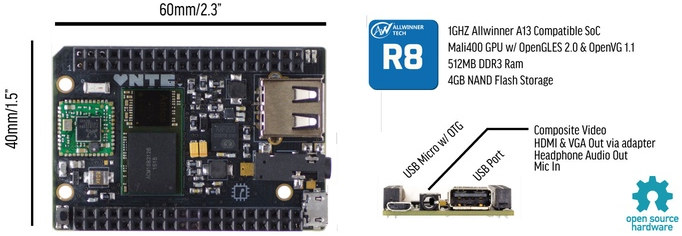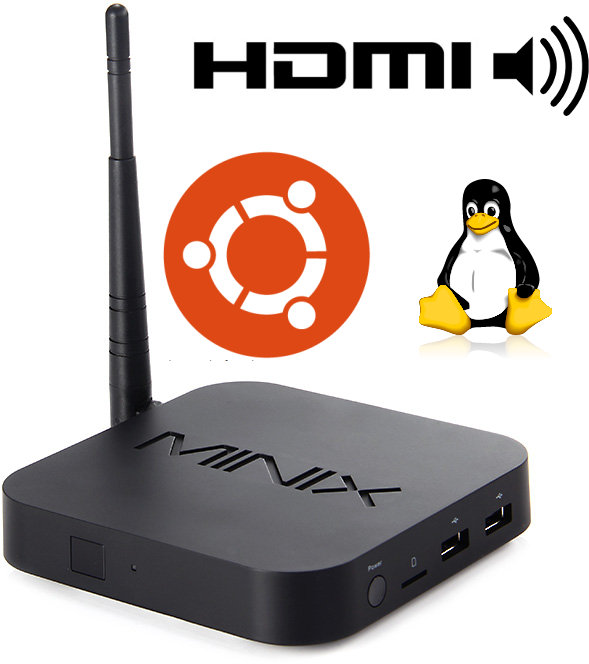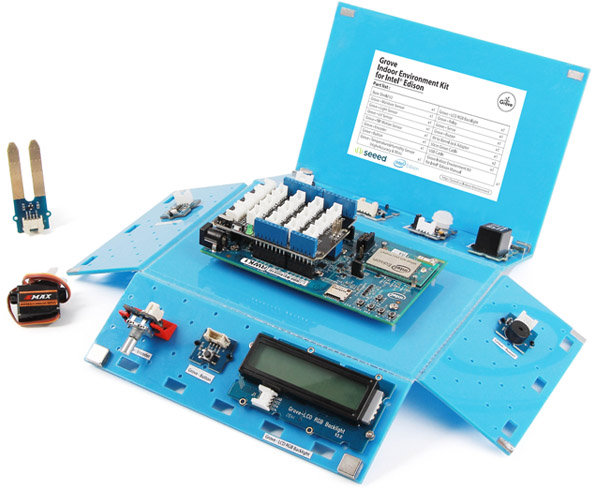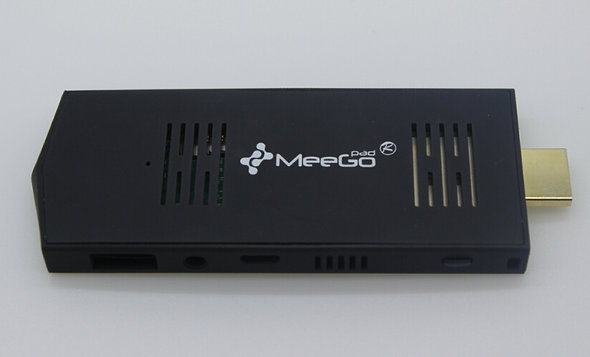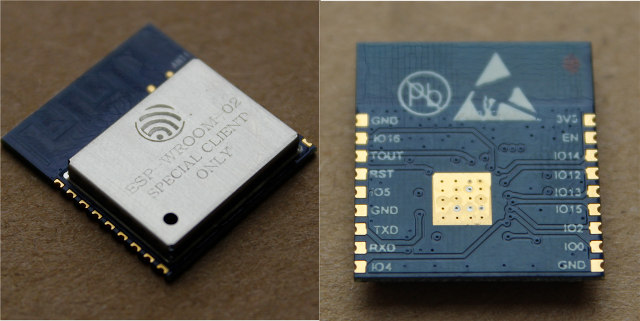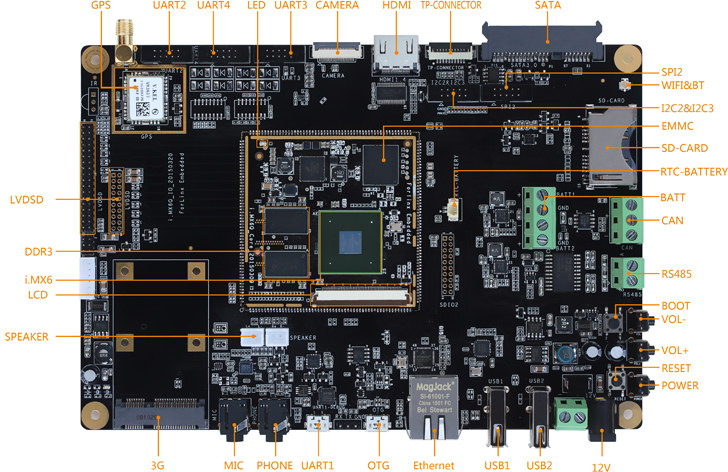It’s quite common to find MCU board for less than $10, but if you want to run Linux, you’ll need to spend a bit more, unlessit’s sponsored, and today, the cheapest you can get is probably the $20 Raspberry Pi Model A+, unless you go with some OpenWRT compatible routers. But there’s now a new board in development, called CHIP, with Allwinner R8 Cortex A8 processor, 512MB RAM, and 4GB NAND flash, as well as wireless connectivity, that will bring cost even lower, as you can pledge $9 on Kickstarter to fund its development. C.H.I.P specifications: SoC – Allwinner R8 Cortex A8 processor @ 1 GHz with Mali-400 GPU (Compatible with Allwinner A13) System Memory – 512 MB RAM Storage – 4GB NAND flash Connectivity – 802.11 b/g/n Wi-Fi + Bluetooth 4.0 Video Output – 3.5mm jack for composite video and audio (HDMI and VGA available via adapters) USB – […]
MINIX NEO Z64W (Intel Atom Z3735F) mini PC gets HDMI Audio in Ubuntu
We’ve been able to run Ubuntu on Intel Atom Z3735F mini PCs, as well as other Linux distributions, for a while, but with an important caveat: HDMI audio would not work, so instead you had to use an external USB sound card to get any audio. Luckily the problem seems solved, as Linuxium has now released a script (audio-wifi-minix-neo-z64-release.sh) and relevant files that will patch your system to enable HDMI audio, and WiFI on MINIX NEO Z64W running Ubuntu. Ian Morrison (Liuxium) compiled a Linux kernel and the Wi-Fi driver, together with a modified DSDT (Differentiated System Description Table) table to fix an ACPI bug. He used John Pemberton’s Bay Trail Audio HDMI patch, as well as help from Paul Kendall for identifying the ACPI DSDT table bug, Bastien Nocera (hadess) for the wifi source code and DroidMote Server / Client for the wifi pointer. A quick demo shows WiFi […]
Seeed Studio Introduces Automation and Wearable Kits for Intel Edison
Intel Edison is a $50 module with a dual core Atom processor @ 500Mhz and a single core Quark MCU @ 100 Mhz, Wi-Fi and Bluetooth 4.0, as well as headers for I/Os that’s destined to be used in wearables and IoT applications. Seeed Studio has now launched two kits for the Intel module for home automation and wearables. Grove Indoor Environment Kit for Intel Edison The automation kit comes in a small blue box with the following parts (Intel Edison and baseboard not included): 1x base shield v2 that plugs into Edison baseboard and allows Grove modules connections 11 grove modules – temperature & humidity, LCD RGB backlight, relay, moisture sensor, servo, light sensor, buzzer, UV sensor, PIR motion sensor, encoder and button. 2x 26 AWG Grove Cables 9V to barrel jack adapter 1x USB cables 1x User guide Programming is done with Edison Arduino IDE as explained in […]
MeegoPad T02 HDMI TV Stick Comes with Windows 8.1 (Activated) or Ubuntu
MeegoPad T01 was one of the first Intel Atom Bay Trail-T TV sticks, announced and released well before Intel’s own Compute Stick, but it initially sold without a proper Windows 8.1 license, although some sellers would sell with an activated version for $25 to $30 more. The company has launched the second version, MeegoPad T02, with either a properly licensed/validated Windows 8.1 with Bing for $109, or an Ubuntu version (or Windows 8.1 non validated) for $90, both prices including shipping. MeegoPad T02 specifications: SoC – Intel Atom Z3735F “Bay Trail” quad core processor @ 1.33 GHz (Bust freq: 1.83 GHz) with Intel HD graphics Gen 7 (2W TDP) System Memory – 2 GB DDR3L Storage – 32 GB eMMC + micro SD slot up to 64GB Video & Audio Output – HDMI 1.4, 1x audio jack Connectivity – 802.11 b/g/n Wi-Fi and Bluetooth 4.0 USB – 2x USB host […]
Espressif WROOM WiFi ESP8266 Modules are FCC and CE Certified
Espressif, the company behind ESP8266 (EX) Wi-Fi chip for IoT applications, has now opened store on Taobao, where they sell WROOM-02 and WROOM-02 modules based on ESP8266EX with FCC, CE, TELEC, and SRRC certifications. WROOM-01 has some soldered headers that make it easier to use for hobbyists and prototyping, while WROOM-02 is more compact, and should be more suitable to include in your own products. But otherwise, they share about the same specifications: SoC – Espressif Systems ESP8266EX 32-bit RISC processor @ 80 MHz with integrated WiFi Wi-Fi – 802.11 b/g/n with STA/AP/STA+AP operation modes Header – 2x 18-pin headers with SDIO 2.0, GPIOs, SPI, UART, GND and 3.3V pins Dimensions – 11.5mm x 11.5mm Temperature Range – -40C ~ 125C Certifications – FCC, CE, TELEC, and SRRC The company can also provide “hardware reference design, antenna design, and SDK for secondary development”, but you’re likely to find most of […]
Linaro 15.04 Release with Linux 4.0 and Android 5.1
Linaro 15.04 has been released with Linux 4.0 (baseline), Linux 3.10.74 and 3.14.39 (LSK), and Android 5.1.1. Other noticeable changes include support for the new DragonBoard 410c 96boards compliant board, the addition of A80 Optimusboard (Allwinner A80) to Android Kitkat build, Hisilicon D01 support added to the Debian installer, and support for Ubuntu ARM64 Gnome rootfs. Highlights of the release: Linux Linaro 4.0-2015.04 updated linaro-android topic: aosp/android-3.18 branch has been merged GATOR topic: version 5.20.1 updated integration-linaro-vexpress64 topic by ARM LT (FVP Base and Foundation models, and Juno support) updated topic from Qualcomm LT (IFC6410 and DB410c boards support): Resource Power Manager (RPM) – MSM Shared Memory Driver (SMD) driver quite some changes under drivers/gpu/drm/ related to adv7511 and adv7533 support ASoC support for QCOM platforms external Connector Class (extcon) support (used for USB VBUS and ID detection) Linaro builds of AOSP 15.04 baseline updated to android-5.1.1_r1 updated Nexus 10 […]
Forlinx Embedded Introduces a Features-packed Freescale i.MX6 Industrial Board
Forlinx Embedded Technology has made several ARM9, ARM11, and Cortex A8 boards in the past, and they’ve now launched their first ARM Cortex-A9 board powered by Freescale i.MX6 Quad processor with 1GB RAM, 8GB eMMC Flash, HDMI, LCD, and LVDS interfaces, mPCIe connector for 3G module, SATA, GPS, CAN bus, RS485 port, and more. The board is composed of a baseboard and a 220-pin CPU module (soldered) with the following combined specifications: SoC – Freescale i.MX6 Quad with 4x ARM Cortex A9 cores @ up to 1.2 GHz and Vivante GC2000 3D GPU System Memory – 1GB DDR3 Storage – 8GB eMMC, SATA connector, and SD card slot up to 32GB Video Output / Display I/F – HDMI 1.4, LCD interface (7″ capacitive touch available), and 2x 8-bit LVDS interface. 4-wire resistive touch. Audio – 1x stereo audio jack, 1x mono microphone jack, 2x speaker headers Camera I/F – 1x […]
ARM: “Microcontrollers Are Better Because There’s No GPL”
[Update: ARM has pulled down the video and issued a statement] ARM has uploaded a video today entitled “Microcontrollers for Makers” showing the benefits of using micro-controller boards instead of processor based development boards such as Raspberry Pi or ODROID-C1, and their four first points are right on target, but the last one, as mentioned by Olimex, is completely wrong, and already made several people upset. Let’s go through the first four points: Micro-controllers are more energy efficient, so if your project is requires years on a cell-coin battery, MCUs are the way to go. MCU are cheaper too, now you can even get an MCU board for $1. They are smaller. The chip shown on the golf ball is Kinetis KL03 If you need real-time I/O, processors can’t beat micro-controller, that why people decide to connect an Arduino board to their Raspberry Pi, or products like UDOO Neo are […]


